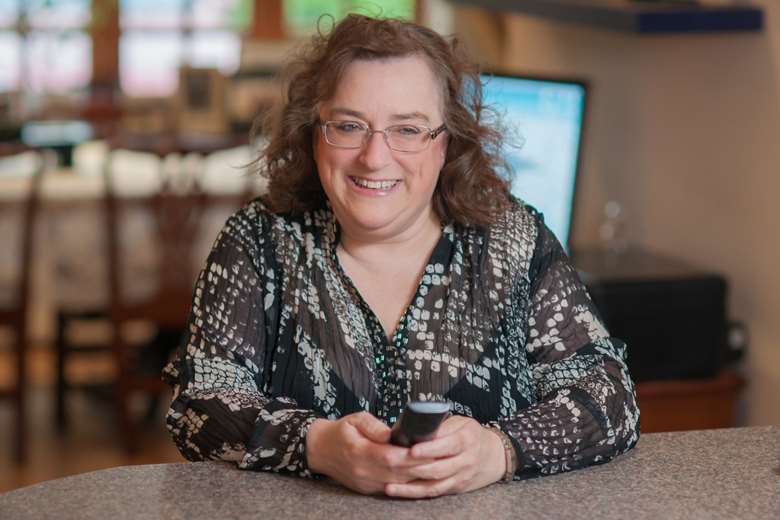The Singing Accountant™: Seven simple new year’s resolutions to tune-up your finances
Louise Herrington
Friday, January 19, 2024
Sponsored content: Classically trained opera singer and professionally qualified accountant Louise Herrington is lead accountant at Performance Accountancy. Here she offers her tips for staying on top of your finances in 2024

As Louise Herrington (The Singing Accountant™) still performs, she has in-depth knowledge of the frustrations of trying to remain creative amid the administration nightmare that many face in dealing with finance and tax. In 2023, Louise’s firm, Performance Accountancy, was a finalist in the Accounting Practice Excellence Awards for its work with performers. So, for the benefit of our readers, here’s how Louise would conduct things, in an ideal world.
As you read this, there are 12 days to go before the deadline to submit your self assessment (31 January). Not yours of course, dear reader. I am sure that you are incredibly punctual, after all, in music, timing is everything. Indeed, as I peer over my abacus at the TV, I see reports that HMRC says more than 7.7 million self assessment customers have already filed their tax return for the 2022 to 2023 tax year.
That’s not bad… but there’s a lot still to come. In fact, there’s clearly concerns over cashflow because the boffins in the tax office also say nearly 44,800 people have sorted their tax bills (totalling almost £148 million) by setting up a payment plan. Very wise, but act now if that is you; by the time you read this, my advice will be more applicable to the tax year 23/24 – the money you earned from April 23 to the April that is lurking around the corner.
So, by all means, try and apply some of my tips and tricks as the hours tick down but you’d be far wiser to make a firm decision that next year, this will all be so much easier. Next year, there will be fewer surprises and stress and trust me, there will be less need to hang on the phone to HMRC’s ‘hotline’ listening to awful hold music.
I get it, doing a tax return is not why you set up in business. You set out to do what you are good at and enjoy doing – performing! So unless you are an accountant bookkeeping, accounts and tax can be a nightmare. These are some of the questions I have been asked in the last few weeks (talk about leaving it to the 11th hour!):
- What expenses can I claim?
- How do I account for my income?
- What do I do about the computer I just bought?
- I used my car a lot for business. What can I claim?
- What happens with my pension contributions?
- Do I add my salary into other income or do I miss it out from the tax return?
- What if I don’t have receipts?
- I’ve just started to rent out a flat. What do I need to do?
- Do I really have to declare income from a lodger?
- I’ve sold some old stuff on eBay. Do I need to declare that as income?
(That last one has been a biggie after the media went a bit crazy for it!)
Well, the good news is, you can find answers to all of these questions on my website and in my book The Singing Accountant's Guide to Tax and Accounts, which contains everything a performer would want to know about setting up as self-employed, from registering with HMRC to starting to complete your self-assessment tax return and what can happen if things go wrong.

In the meantime, let’s look at seven new year’s resolutions that will stop you from getting into a similar pickle next year.
They may not appear magnificent or even munificent, but I hope they will help you:
- Do your bookkeeping each week – just find 20-30 mins. It will save you so much time.
- Consider investing in an accounting app like Xero or 1Tap
- Always keep your receipts. If you use an online app like 1Tap or Dext Solo, providing the photo of the receipt is in focus, it will extract the relevant information to your bookkeeping and if you lose the receipt, the app has a copy.
- Track your mileage if you use a car, motorbike or bike for self-employment.
- Put aside at least 29% of your income as soon as it comes in as a ‘Tax Pot’.
- Have a separate bank account for your self-employment income and expenses. Any PAYE income goes into a separate ‘life’ account.
- If you buy instruments or big items, keep the receipt very very safe and track how you deal with it in your tax and accounts, as you may be able to claim capital allowances. (NB: you may have to pay some back if you sell the item for a profit.)
So there’s 7 but how about a bonus Louise? (An encore, if you will.)
Why not aim to do your tax return in May or June? Well, you may be able to get a reduction on your payment on account if you have to make one because if your profit is lower, you may be able to reduce the amount in July, and even get something back from January.
Plus, a plea, if you do use an accountant (bravo to you, very wise!), please do respect their deadlines for getting data to them. You may think ‘it is only one return’ but that one could be one of a couple of hundred – trust me!
So, follow my tips because if you do, you will soon find that taking control of your tax and accounts needn’t be a massive performance!